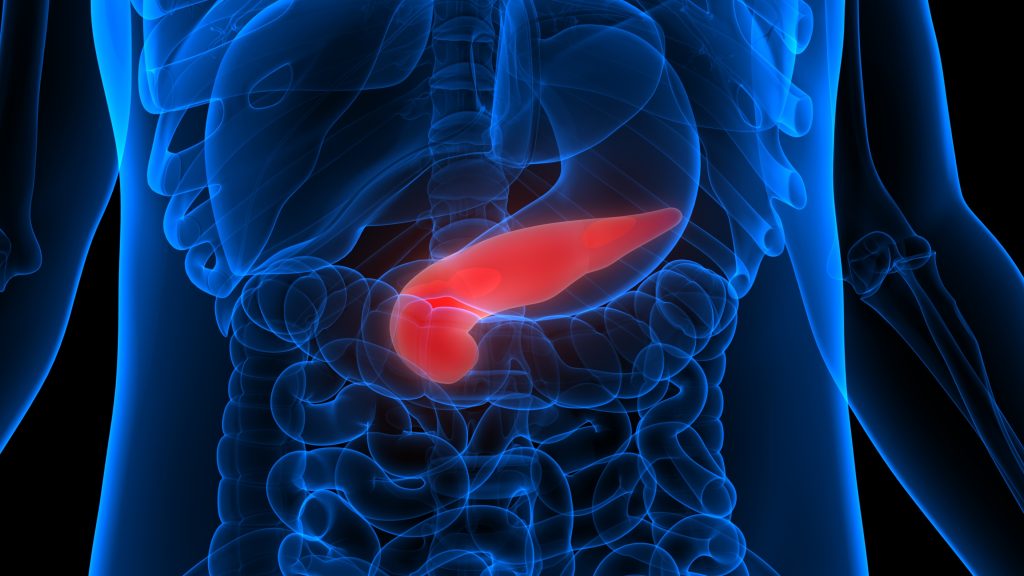Novel pancreatic cancer drug targets scar-like tumour tissue
Researchers at the Garvan Institute of Medical Research have tested a new drug that directly targets aggressive pancreatic tumours which could improve patient outcomes.

Pancreatic cancer is the fourth most common cause of death from cancer. As the five-year survival rate for people diagnosed with the disease is only 12%, improved detection and treatment is a priority. Enter the Garvan Institute of Medical Research, which identified the need to develop and progress new treatment solutions that rethink how to target pancreatic ductal adenocarcinoma (PDAC) – the most common type of pancreatic cancer and one of the most aggressive forms of the disease. As a result, a team conducted research which led them to test a new approach for treating the cancer by understanding and targeting key factors that affect treatment outcomes.
This novel drug, called PXS-5505, is showing great promise in helping to combat this disease. It targets scar-like ‘fibrotic’ tissue which forms within and around the growing tumour. To evaluate the drug, the team first generated 3D models that mimic tumours and used cutting-edge imaging technology. Infrastructure needs for the research were supported by the Office for Health and Medical Research, via a grant from the Medical Research Support Program.
Treatment delay and resistance
The pancreas is tucked away behind the lower part of the stomach. It is an important organ which produces enzymes that help digestion, and hormones that help metabolise sugars. As pancreatic cancer may slip under the radar causing few obvious signs, it can often go undetected until it has reached a more advanced stage. This makes effective treatment more difficult and increases the likelihood of a process called metastasis, where the cancer spreads to other parts of the body.
The success of anti-cancer drugs is dependent on many factors, including the properties of the tumour tissue. As a tumour grows it changes the tissue around it, and this affects response to treatment. “PDAC has shown a marked resistance to a number of therapies, including chemotherapy, radiotherapy and immunotherapy,” says Associate Professor Thomas Cox, who leads the Matrix and Metastasis Lab at the Garvan Institute of Medical Research and oversaw the program of work. This means that PDAC can be difficult to treat and the survival rate has not significantly improved over the last four decades. “Pancreatic tumours are typically characterised by dense connective tissue, known as the extracellular matrix,” Cox explains. “This forms a scar-like ‘fibrosis’ within and around the tumours, which is associated with the aggressive nature of pancreatic ductal adenocarcinoma”.

Targeting tumour tissue and enzymes
The researchers targeted key enzymes involved in the formation of this extracellular matrix. These enzymes are critical for the deposition of collagen molecules into the fibrotic tissue around pancreatic tumours. The study then identified and validated the impacts of the new drug called PXS-5505, in blocking the formation of that scar-like tissue.
The team at the Garvan Institute of Medical Research then set out to target the fibrosis, in combination with already approved standard-of-care therapy. They hoped that combining the drug with chemotherapy would lead to improvements in treatment response rate and patient outcomes. Finding new treatment strategies for pancreatic cancer has long been on the radar of the organisation, which has been rethinking ways to target solid pancreatic tumours and drive forward the development of new drugs and treatment regimens for PDAC.
A promising new combination therapy
In 2023, the results of the PXS–5505 drug study were published in the prestigious journal Nature Cancer. The paper was co-authored by Dr. Jessica Chitty, Senior Research Officer at the Garvan Institute of Medical Research. The team is now progressing their research through the next steps towards clinical trials. “Going forward, we are confident that through targeting the desmoplastic response against invasive cancer, which causes the build-up of fibrotic tissue, PXS-5505 could enhance the efficacy of standard-of-care treatment in pancreatic cancer to help improve outcomes in this aggressive disease,” says Cox.
Updated 7 months ago